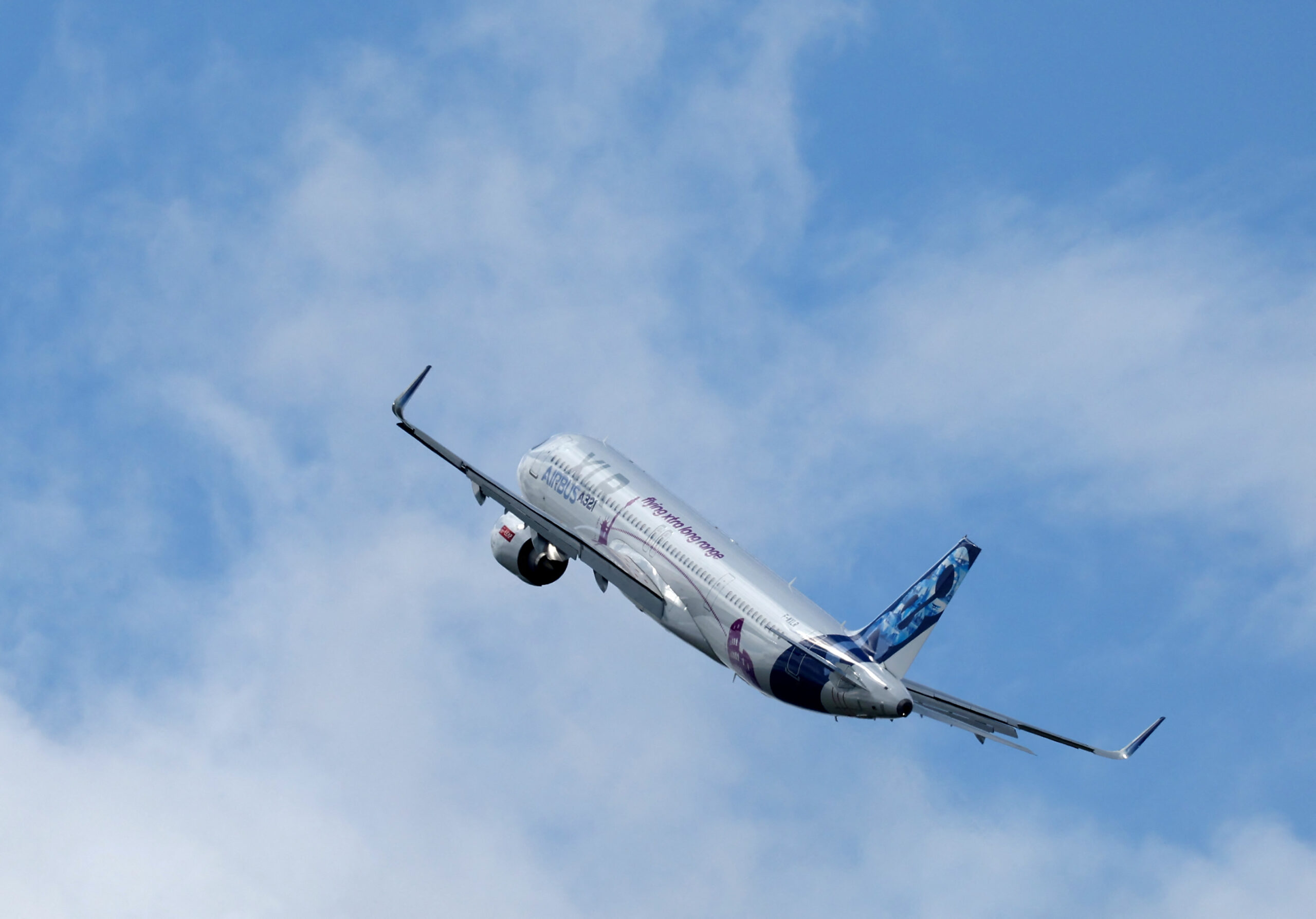FARNBOROUGH, England – The world’s largest air show fizzled out on Thursday with a solid new Saudi jetliner order unable to dispel the gloom over recent problems in producing planes fast enough to meet demand.
Britain’s Farnborough Airshow opened earlier this week amid alarm signals from airlines over falling yields or average fares. But delegates said they remained above historic levels and although quiet, the show confirmed demand for wide-body jets.
Airbus and Boeing (NYSE: BA) posted about 40 firm orders – a fraction of recent years – and were roughly level depending on whether Qatar Airways’ decision to come forward as the previously unnamed buyer for an existing Boeing order was counted.
Including preliminary new orders, Airbus pulled ahead after announcing a deal on Thursday for 90 planes including 15 A330neos from Saudi carrier Flynas. Reuters reported talks with Flynas on the model ahead of the show.
There was none of the triumphalism seen at past events with both major planemakers recognising they had other pressing issues, including the inability of factories to keep up with recent demand because of disruption left over from the pandemic.
“Almost everyone plays to the rhythm. But all it takes is one piece of the puzzle that’s missing and the puzzle is not complete,” Airbus planemaking CEO Christian Scherer told Reuters. “We have 4,000 suppliers that flow into one plane.”
With the VIP chalets pulling down the shutters on a rainy and subdued air show, with only a drizzle of new aircraft orders, the exhibition halls where the global supply chain sets up shop for the week were still humming with activity.
Inside the temporary bazaar, suggestions from manufacturers that the whole supply chain bears responsibility for the industry’s manufacturing woes were far from popular.
“Did they tell you who broke it?” said a senior executive with a company that makes small engine parts.
Many suppliers blame relentless cost cuts or wobbly production targets for weakening the supply chain.
Fewer than half of suppliers believe industry production targets will be achieved on time, according to a McKinsey and Aviation Week survey released during the show.
“Everyone needs more machinists but the (manufacturers) sometimes have a clunky way of approving new suppliers,” said Paul Marshall, sales director at family-owned UK precision milling firm B-Tech, which saw increased demand at the show.
The final day of the event on Friday was due to be devoted entirely to a crisis over the hiring of new workers after many employees left or retired early during the pandemic – taking with them skills and experience badly needed to boost output.
PARTNERSHIPS
The immediate focus of investment is in repair capacity for existing planes, where long waiting times have forced airlines to leave jets grounded just when they are needed in the summer.
GE Aerospace (NYSE: GE) said it would invest over $1 billion over five years in its maintenance facilities worldwide.
The focus on short-term supply concerns did not prevent one or two players from previewing their next moves in a battle that is just getting started over new long-term airplane developments.
Engine and plane makers are jockeying for position ahead of the next round of single-aisle planes expected next decade, replacing the workhorse Airbus A320 and Boeing 737 models.
Rolls-Royce took a further step towards re-entering a slice of the market which it had abandoned over a decade ago, saying it is making a smaller version of its Ultrafan demonstrator.
Brazilian regional planemaker Embraer (NYSE: ERJ), left isolated after the breakdown of alliance talks with Boeing in 2020, reiterated it was looking for an international partner to try in the future to challenge the Airbus and Boeing duopoly.
“I think we’ve been very clear on partnerships, we’re looking at China, we’re looking at India, we’re looking at Turkey, we’re looking at Morocco, we’re looking at Saudi,” Arjan Meijer, Embraer Commercial Aviation CEO, told Reuters.
South Korea has also been approached, industry sources said.
Boeing (NYSE: BA) had a mainly uneventful show: an outcome seen as a success for a company mired in bad headlines in recent months, and branded directionless by industry commentators as it seeks a new CEO following a mid-air 737 MAX 9 panel blowout in January.
Airlines and suppliers said the industry needs Boeing to recover and some expressed frustration that the company’s crisis continued, five years after the second of two fatal MAX crises that cost it billions of dollars and shattered its reputation.
Even rival Airbus has complained about the negative impact on the overall industry of Boeing’s difficulties.
“I hope whatever they are doing is the right cure for what the problem is, but we want it to be consistent,” said Ghaith al-Ghaith, CEO of Dubai-based Flydubai, a major customer.
“We don’t want to hear ‘more delays.’ We want them to be the Boeing of old times that we trust.”
(Source: ReutersReuters)













